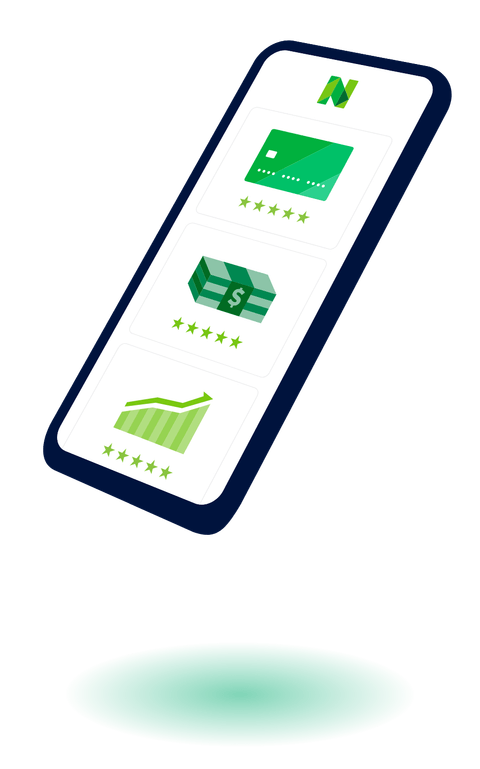How to Start a Consulting Business
Here's what to know about how to start a consulting business: how to find clients, pitch your services, set prices.

Many, or all, of the products featured on this page are from our advertising partners who compensate us when you take certain actions on our website or click to take an action on their website. However, this does not influence our evaluations. Our opinions are our own. Here is a list of our partners and here's how we make money.
Starting any kind of business is a challenge, but starting a business where your goal is to help others run their own more efficiently is doubly challenging.
A niche tends to be a good place to look when determining how to start a consulting business, whether your area is HR (managing the workforce of a company, including sourcing, selection, hiring, and ensuring compliance), strategy (improving performance, perhaps through workflow management), technology (delivering and implementing new software solutions), or some other consulting service that will help other businesses improve and grow.
In any of these categories, the client wants guidance but doesn't want to bring on the advice-giver full time. That’s where you come in. If you've got expertise and knowledge to offer and you like the idea of being your own boss, then you could be on the brink of starting your own consulting business.
How to start a consulting business in 9 steps
As work processes become more complex and our economy becomes increasingly globalized, the need for good consultants has never been greater. According to IBISWorld, revenues in the consulting industry will exceed $261 billion in 2020.
“It’s hip right now to tell people you’re an independent consultant,” says Christy Hopkins, the founder of 4 Point Consulting in Chicago. “I do human resources consulting for various small businesses throughout the country, and I provide various services that change depending on the client. The same thing can be done different ways if the culture and needs are different.”
Once you identify a niche for the kind of consulting you do, consider the following steps to establishing yourself as a leading voice across the industry.
Smart money moves for your business
Grow your small business with tailored insights, recommendations, and expert content.

Step 1: Assess your strengths and skill set
Often, consultants are hired to solve problems that businesses can't solve themselves. Otherwise, why would they pay you, someone who doesn't know anything about their company, to come in and tell them what to do? When starting a consulting business, it's important to have deep knowledge in a specific area so that you can offer value to your clients.
There are many different kinds of consulting that you can consider for your business. For example, if you know a lot about computers, you can set up shop as a computer or IT consultant.
There are also plenty of opportunities for PR mavens, accountants, digital marketers, and people who have a mind for business strategy.
Assess your strengths to figure out where you can be of help. It's also worth taking an objective look at any weaknesses or missing skills you may have so that you can work on filling those gaps. Also keep in mind that, depending on your area of expertise, you may need special certifications or licenses before becoming a consultant. For example, if you're a fundraising consultant it helps to have a certification from the National Society of Fund Raising Executives.
Step 2: Figure out what your market needs
Once you've identified your niche, think about what kinds of questions, problems, and pain points businesses in your chosen area of expertise have. It's not enough to simply have a strong skillset and a lot of knowledge in your field. If businesses don't have problems that your consulting business can solve, then you will find yourself treading water.
The best way to figure out what your market wants and needs is to ask. Start by doing an online search for blogs in your niche. What are the thought leaders writing about? Where does there seem to be a lot of confusion? Is there heated debate in any forums or comment sections over a particular topic?
You can also find pain points in your market by tapping your network. For example, if you want to start a digital marketing consultancy, then who can you think of that either owns their own business, works closely with digital marketers, or is a digital marketer themselves? Chances are, you know a lot of people. Ask them about challenges they face in meeting their short and long term goals. Then figure out how you and your business can help.
Step 3: Ride the organic marketing train
As an independent consultant, it will be all on you to grow your client base and make sure the business rolls in at a consistent pace. This is best done with marketing—but as always, the best marketing is organic marketing.
Hopkins started her business with a simple post on Upwork, the freelancer site that a few years ago was less well-known and had, according to Hopkins, more lucrative contracts. Hopkins says her first client is still with her today, and she has grown almost exclusively without having to advertise.
“I’ve been very fortunate that my business has built organically. I don’t know if that’s typical, but my personal experience is that I do the best I can. I’m very honest, I’m ethical, I don’t overcharge, I’m willing to work within budgets, and that has led to a lot of organic referrals,” she says.
Business owners have two distinct advantages with organic marketing. The first is that business owners tend to know each other and can make referrals for you. Like tends to be with like, so if you work well with somebody, you’ll probably work well with one of their friends.
The second upside with organic marketing is the cost—there isn't any. “I’m biased on how well it works for business, because it’s free,” Hopkins says with a laugh.
Step 4: Invest in the tools of the trade
Hopkins built her business with technological tools of the trade that let her forge and maintain connections with clients, prospective employees, and her assistant.
“I use three types of recruitment software—web-based software that helps you to post jobs,” she says. There’s MightyRecruiter, which has a system that feeds to Indeed, Monster, LinkedIn, and all the job sites you can think of, which saves time and concentrates applicants into one space. There’s ZipRecruiter, which is good for low-level jobs. LinkedIn has a two-tiered recruiter service for propositioning applicants or referrals.
MightyRecruiter is $300 a month, while ZipRecruiter is $1,000 for the year. LinkedIn’s RecruiterLite is $150 and Corporate is $700. In total, Hopkins pays about $500 a month for these recruiting tools, which give her access to people searching for everything from culinary jobs to data scientists.
Hopkins also recommends video conferencing software, at about $200 per year, for making a better connection with clients.
“They click in and they feel like they know me," she says. "They know I’m 5'2", big personality, blue eyes, talk with my hands, and they get all that even though I don’t have an office space.”
Beyond these consultant-specific tools, new consultants should also invest in the kinds of things almost all new small business owners do: develop a website ($2,000 for a great, navigable site plus around $200 for hosting), order business cards, set up an LLC (prices vary from state to state), open a business checking account and business credit card, and hire an accountant to check on the books and file taxes (around $700 annually for a small business).
Step 5: Staff wisely
Whether you need (or want) a staff to help you depends on the amount of work you have to do. Working seven days a week and 12-hour days isn’t sustainable no matter how zen you might be, and is certainly a possibility if you’re successful at growing your company.
Hopkins personally doesn’t see the upside in taking on more work than she can handle at this point. She did hire an on-demand assistant, who lives overseas and handles the dirty work of consulting on a part-time basis.
“I can do the work with the client, get the spec [job description] together, and he can find the résumés, the people, the LinkedIn profiles, which is the arduous uphill battle, and I can outsource those hours to him,” she says. “He has his own business, as well, and we have a B2B relationship. Some months he logs 50 hours to me and some he logs none.”
She communicates with her assistant via Skype, since he’s an American living in Budapest. She wouldn’t normally hire someone outside the U.S. since “there's a ton of talent right here,” but the two of them hit it off right away over Skype. She might otherwise hire an intern or two from her old graduate school to help with sourcing.
Step 6: Practice your elevator pitch
There's no use in having an impressive skill set, a rock solid marketing plan, and the most up-to-date tools if you can't make and close the sale. Convincing potential clients to choose your consulting business starts with your elevator pitch.
Your elevator pitch should be a short and sweet explanation of your target audience's problem, the solutions you offer, and how you are different from the competition. Although you may be very passionate about the services you offer and the industry problems you see, it's important to keep your pitch to around three sentences max.
A big-picture way of looking at your elevator pitch is that it is your value proposition. Once you deliver the concise version of your value proposition and a potential client wants to learn more, you can proceed to tell your story and talk about your consulting services more in-depth.
Step 7: Write client proposals
Often, the final step in bringing on a new client is writing a client proposal. This tends to occur right before the client signs on, effectively closing your sale. As such, writing proposals is an important part of getting business for your consultancy.
Client proposals are your chance to illustrate how you can serve your client and solve their problem. As such, it's necessary to be clear about what the project is, why you're lending your consulting services, and when you'll complete the project. It's also important to be very clear about all the details that will go into the project, including deliverables, budget, and how you'll measure results. Be clear, be convincing, and close that client.
Step 8: Set your pricing
Along with your proposal, you'll need to include a price. When starting out in consulting, it can be difficult to know how to price your services. Luckily, Hopkins has a pretty easy formula to follow.
“When I first started moonlighting, I took my HR manager salary and turned it into an hourly rate. For a consultant, that’s undercharging. Now I charge double that hourly rate, and that’s been a progression,” she says.
When it comes to progressing past that starting converted hourly rate—because as an independent, you are assuming more risk and should be billed higher than an in-house option—Hopkins suggests showing clients just how much value you bring to their company.
“For [existing] clients I had... I made each of them a cost/benefit write-up to show them how much money they saved versus either working with a traditional recruiter or a different independent consultant," she says. "From there, I told them my rates were going up 25%, this is the new hourly rate, and every single one of them said 'done, fine.' I just showed them the math. Now... I’ve only pitched clients at the new rate and no one has told me I’m overpriced. I’m probably still undercharging, but I like to work with small businesses and startups, and if I want to work with them, I can make it work. If they have a good mission and vision, if they’ll be ethical and treat the new hires well, I want to help them because I know there are a lot of recruiters and consultants that won’t.”
Step 9: Stay organized and deliver results
Once your consulting business is on track, be sure to stay organized and deliver results so that you can get repeat clients and referrals. Staying organized is important to ensure that you don't lose valuable information, deliver past deadlines, or forget to remind clients to pay you. Start by seeing where you can automate certain processes. Perhaps you can get paid electronically rather than by check or switch to an online bookkeeping system such as QuickBooks. Software such as Infusionsoft can help you manage your clients. If all else fails, consider hiring a virtual assistant.
Delivering results is a bit harder to give advice on, but very important to the vitality of your consulting business. Be sure to stay on top of industry trends, and to check in with your clients to be sure you're delivering results that they want and that help their businesses achieve their objectives. If you successfully help your clients achieve their goals, then your consulting business will be set up for success.
Consulting niches to consider
Say you have expertise that applies to multiple industries—how do you pick an area to specialize in? When you're just starting out, you might want to consider focusing in a space that has consistent demand. On the other hand, you could identify an emerging field of business, and hone your reputation as an expert in that industry. Here are some suggestions for consulting niches to consider specializing in:
Accounting
Yes, being an independent accountant is a type of consultant. As an accountant, you'll help businesses manage their books and financial needs. It helps to be a CPA if considering striking off as an accounting consultant, but anyone with a bookkeeping background is eligible to enter this field of consulting.
Branding
As a brand consultant, you can work with businesses to identify and refine their brand voice and image. As a brand consultant, you'll work to learn about a business's customers, then craft a brand that will help the business resonate with its target market. To become a brand consultant, it helps to have a background in marketing.
Web design
Another area of need for many businesses is web design. As a web design consultant, you'll work with businesses to create a website that is on-brand and functions to their specifications. A background in computer engineering is helpful here.
Human resources
Like Hopkins, you can become an HR consultant—assisting businesses with their staffing and employee management responsibilities, and advising them on best practices for keeping their workforce happy and engaged. This job could include everything from writing job descriptions to helping with onboarding.
Green living
As more and more businesses commit to going green to protect the environment, consulting on how to lower carbon emissions can be a lucrative field without a lot of competition. As a green living consultant, you can help businesses accomplish a variety of tasks that lower their carbon footprint, such as developing more green-friendly office environments or manufacturing processes.
Organization
Organization consultants advise individuals and businesses on how they can reduce organizational red tape, clutter, and distractions in order to operate more efficiently. This is an area of increased focus, as technology has created new distractions and blurred the lines between work and home life.
The bottom line
Whether your consulting business is going to be big or small, brick-and-mortar-based or online-only, expensive or economical, you need to have the experience, resources, and confidence to help other business owners get back on track. Everything else is about managing workflow and expectations.
Article sources
NerdWallet writers are subject matter authorities who use primary,
trustworthy sources to inform their work, including peer-reviewed
studies, government websites, academic research and interviews with
industry experts. All content is fact-checked for accuracy, timeliness
and relevance. You can learn more about NerdWallet's high
standards for journalism by reading our
editorial guidelines.
Related articles







